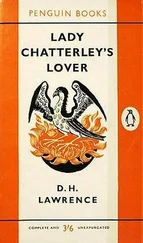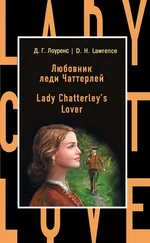If he could have sprung out of his chair, he would have done so. His face went yellow, and his eyes bulged with disaster as he glared at her.
Then he dropped back in the chair, gasping and looking up at the ceiling.
At length he sat up.
“Do you mean to say you’re telling me the truth?” he asked, looking gruesome.
“Yes! You know I am.”
“And when did you begin with him?”
“In the spring.”
He was silent like some beast in a trap.
“And it was you, then, in the bedroom at the cottage?”
So he had really inwardly known all the time.
“Yes!”
He still leaned forward in his chair, gazing at her like a cornered beast.
“My God, you ought to be wiped off the face of the earth!”
“Why?” she ejaculated faintly.
But he seemed not to hear.
“That scum! That bumptious lout! That miserable cad! And carrying on with him all the time, while you were here and he was one of my servants! My God, my God, is there any end to the beastly lowness of women!”
He was beside himself with rage, as she knew he would be.
“And you mean to say you want to have a child to a cad like that?”
“Yes! I’m going to.”
“You’re going to! You mean you’re sure! How long have you been sure?”
“Since June.”
He was speechless, and the queer blank look of a child came over him again.
“You’d wonder,” he said at last, “that such beings were ever allowed to be born.”
“What beings?” she asked.
He looked at her weirdly, without an answer. It was obvious, he couldn’t even accept the fact of the existence of Mellors, in any connexion with his own life. It was sheer, unspeakable, impotent hate.
“And do you mean to say you’d marry him? — and bear his foul name?” he asked at length.
“Yes, that’s what I want.”
He was again as if dumbfounded.
“Yes!” he said at last. “That proves that what I’ve always thought about you is correct: you’re not normal, you’re not in your right senses. You’re one of those half-insane, perverted women who must run after depravity, the nostalgie de la boue. [122] Nostalgie de la boue ( фр. ) — дословно «ностальгия по грязи»; желание низменных удовольствий и разврата.
”
Suddenly he had become almost wistfully moral, seeing himself the incarnation of good, and people like Mellors and Connie the incarnation of mud, of evil. He seemed to be growing vague, inside a nimbus.
“So don’t you think you’d better divorce me and have done with it?” she said.
“No! You can go where you like, but I shan’t divorce you,” he said idiotically.
“Why not?”
He was silent, in the silence of imbecile obstinacy.
“Would you even let the child be legally yours, and your heir?” she said.
“I care nothing about the child.”
“But if it’s a boy it will be legally your son, and it will inherit your title, and have Wragby.”
“I care nothing about that,” he said.
“But you must! I shall prevent the child from being legally yours, if I can. I’d so much rather it were illegitimate, and mine: if it can’t be Mellors”.”
“Do as you like about that.”
He was immovable.
“And won’t you divorce me?” she said. “You can use Duncan as a pretext! There’d be no need to bring in the real name. Duncan doesn’t mind.”
“I shall never divorce you,” he said, as if a nail had been driven in.
“But why? Because I want you to?”
“Because I follow my own inclination, and I’m not inclined to.”
It was useless. She went upstairs and told Hilda the upshot.
“Better get away tomorrow,” said Hilda, “and let him come to his senses.”
So Connie spent half the night packing her really private and personal effects. In the morning she had her trunks sent to the station, without telling Clifford. She decided to see him only to say good-bye, before lunch.
But she spoke to Mrs Bolton.
“I must say good-bye to you, Mrs Bolton, you know why. But I can trust you not to talk.”
“Oh, you can trust me, your Ladyship, though it’s a sad blow for us here, indeed. But I hope you’ll be happy with the other gentleman.”
“The other gentleman! It’s Mr Mellors, and I care for him. Sir Clifford knows. But don’t say anything to anybody. And if one day you think Sir Clifford may be willing to divorce me, let me know, will you? I should like to be properly married to the man I care for.”
“I’m sure you would, my Lady. Oh, you can trust me. I’ll be faithful to Sir Clifford, and I’ll be faithful to you, for I can see you’re both right in your own ways.”
“Thank you! And look! I want to give you this — may I?” So Connie left Wragby once more, and went on with Hilda to Scotland. Mellors went into the country and got work on a farm. The idea was, he should get his divorce, if possible, whether Connie got hers or not. And for six months he should work at farming, so that eventually he and Connie could have some small farm of their own, into which he could put his energy. For he would have to have some work, even hard work, to do, and he would have to make his own living, even if her capital started him.
So they would have to wait till spring was in, till the baby was born, till the early summer came round again.
* * *
The Grange Farm Old Heanor 29 September
I got on here with a bit of contriving, because I knew Richards, the company engineer, in the army. It is a farm belonging to Butler and Smitham Colliery Company, they use it for raising hay and oats for the pit-ponies; not a private concern. But they’ve got cows and pigs and all the rest of it, and I get thirty shillings a week as labourer. Rowley, the farmer, puts me on to as many jobs as he can, so that I can learn as much as possible between now and next Easter. I’ve not heard a thing about Bertha. I’ve no idea why she didn’t show up at the divorce, nor where she is nor what she’s up to. But if I keep quiet till March I suppose I shall be free. And don’t you bother about Sir Clifford. He’ll want to get rid of you one of these days. If he leaves you alone, it’s a lot.
I’ve got lodging in a bit of an old cottage in Engine Row very decent. The man is engine-driver at High Park, tall, with a beard, and very chapel. The woman is a birdy bit of a thing who loves anything superior. King’s English and allow-me! all the time. But they lost their only son in the war, and it’s sort of knocked a hole in them. There’s a long gawky lass of a daughter training for a school-teacher, and I help her with her lessons sometimes, so we’re quite the family. But they’re very decent people, and only too kind to me. I expect I’m more coddled than you are.
I like farming all right. It’s not inspiring, but then I don’t ask to be inspired. I’m used to horses, and cows, though they are very female, have a soothing effect on me. When I sit with my head in her side, milking, I feel very solaced. They have six rather fine Herefords. Oat-harvest is just over and I enjoyed it, in spite of sore hands and a lot of rain. I don’t take much notice of people, but get on with them all right. Most things one just ignores.
The pits are working badly; this is a colliery district like Tevershall. only prettier. I sometimes sit in the Wellington and talk to the men. They grumble a lot, but they’re not going to alter anything. As everybody says, the Notts-Derby miners have got their hearts in the right place. But the rest of their anatomy must be in the wrong place, in a world that has no use for them. I like them, but they don’t cheer me much: not enough of the old fighting-cock in them. They talk a lot about nationalization, nationalization of royalties, nationalization of the whole industry. But you can’t nationalize coal and leave all the other industries as they are. They talk about putting coal to new uses, like Sir Clifford is trying to do. It may work here and there, but not as a general thing, I doubt. Whatever you make you’ve got to sell it. The men are very apathetic. They feel the whole damned thing is doomed, and I believe it is. And they are doomed along with it. Some of the young ones spout about a Soviet, but there’s not much conviction in them. There’s no sort of conviction about anything, except that it’s all a muddle and a hole. Even under a Soviet you’ve still got to sell coal: and that’s the difficulty.
Читать дальше
Конец ознакомительного отрывка
Купить книгу
![Дэвид Лоуренс Lady Chatterley's Lover [С англо-русским словарем] обложка книги](/books/26613/devid-lourens-lady-chatterley-s-lover-s-anglo-cover.webp)
![Герберт Уэллс - The War of the Worlds [С англо-русским словарем]](/books/26611/gerbert-uells-the-war-of-the-worlds-s-anglo-thumb.webp)
![Джейн Остин - Sense and Sensibility [С англо-русским словарем]](/books/26612/dzhejn-ostin-sense-and-sensibility-s-anglo-thumb.webp)
![Джек Лондон - Hearts of Three [С англо-русским словарем]](/books/26615/dzhek-london-hearts-of-three-s-anglo-thumb.webp)
![Чарльз Диккенс - A Tale of Two Cities [С англо-русским словарем]](/books/26616/charlz-dikkens-a-tale-of-two-cities-s-anglo-thumb.webp)
![Коллектив авторов - Best Short Stories [С англо-русским словарем]](/books/26635/kollektiv-avtorov-best-short-stories-s-anglo-thumb.webp)
![Брэм Стокер - Dracula [С англо-русским словарем]](/books/26636/brem-stoker-dracula-s-anglo-russkim-slovarem-thumb.webp)





